Filter by
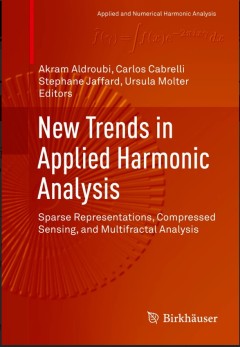
New Trends in Applied Harmonic Analysis
This volume is a selection of written notes corresponding to courses taught at the CIMPA School: "New Trends in Applied Harmonic Analysis: Sparse Representations, Compressed Sensing and Multifractal Analysis". New interactions between harmonic analysis and signal and image processing have seen striking development in the last 10 years, and several technological deadlocks have been solved throug…
- Edition
- 1
- ISBN/ISSN
- 2296-5009
- Collation
- XXVIII, 334
- Series Title
- Applied and Numerical Harmonic Analysis
- Call Number
- -
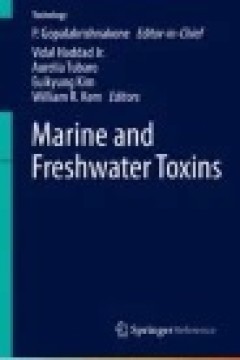
Marine and Freshwater Toxins
This book presents the structure of the main toxins of aquatic origin, their distribution, producing species and vectors, their mechanisms of action, the clinical aspects of envenomation in humans, their effects in laboratory or wild animals, their toxicokinetic properties, including the relevant treatment, detection methods and regulatory aspects for management. The work also presents the main…
- Edition
- -
- ISBN/ISSN
- 978-94-007-6418-7
- Collation
- -
- Series Title
- -
- Call Number
- -
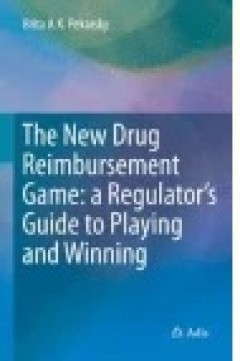
The New Drug Reimbursement Game
The limitations of the non-strategic methods that currently inform the highly contested new drug subsidy game are presented and the relative strengths of PEA are demonstrated. Health technology assessment quantifies both the clinical innovation of a new drug and its financial impact on the health system. Cost effectiveness analysis tests the relationship between the incremental cost and incre…
- Edition
- -
- ISBN/ISSN
- 978-3-319-08903-4
- Collation
- XVI, 248
- Series Title
- -
- Call Number
- -
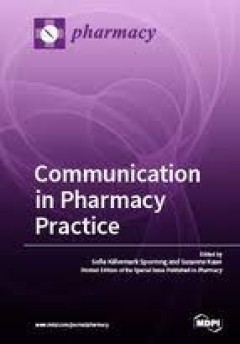
Communication in Pharmacy Practice
This reprint book ‘Communication in Pharmacy Practice’ is launched to help improve communication practices by increasing knowledge of different aspects of communication in pharmacy practice. The book consists of recently published research articles and illustrates that pharmacy communication is a research subject that is investigated globally and from many perspectives. The overall pharmacy…
- Edition
- -
- ISBN/ISSN
- 978-3-03897-577-9
- Collation
- -
- Series Title
- -
- Call Number
- 615 COM
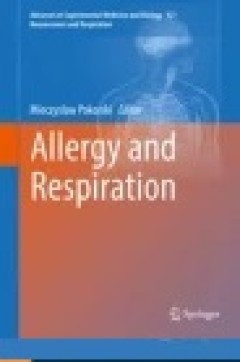
Allergy and Respiration
Allergy is an increasing health issue. It often targets the respiratory tract and entwines with respiratory ailments, which makes it difficult to discern the cause-effect linkage. Nonetheless, measures to counter the allergic background are a linchpin in preserving respiratory health. This book is an update on current advances in clinical and basic science on allergy and related topics. The dia…
- Edition
- Ed. 1
- ISBN/ISSN
- 978-3-319-42004-2
- Collation
- VIII, 87
- Series Title
- Advances in Experimental Medicine and Biology
- Call Number
- 616.97 ALL a
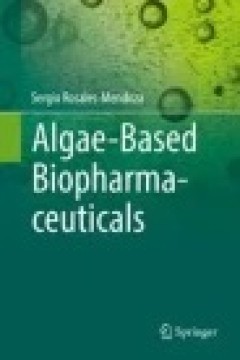
Algae-Based Biopharmaceuticals
This book constitutes a key reference on the use of algae in the biopharmaceuticals production field; providing an updated outlook on the achievements accomplished thus far and transmitting a prospective view for this biotechnological application. This book provides a detailed description of the technology as well as an updated outlook of the strides achieved thus far in the field of algae-b…
- Edition
- Ed. 1
- ISBN/ISSN
- 978-3-319-32232-2
- Collation
- X, 166
- Series Title
- -
- Call Number
- 615.4 ROS a
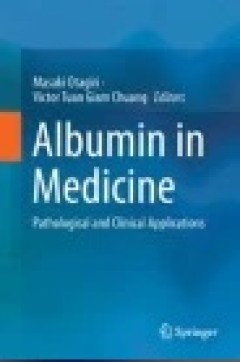
Albumin in Medicine: Pathological and Clinical Applications
This book presents a comprehensive overview of medical and pharmaceutical applications of human serum albumin (HSA), with updates on structural aspects of albumin from the perspectives of X-ray crystallography and NMR, endogenous and exogenous ligand binding of albumin in various pathological conditions, and genetic variants and their phenotypes. Rapid progress and development of its applicatio…
- Edition
- Ed. 1
- ISBN/ISSN
- 978-981-10-2116-9
- Collation
- X, 277
- Series Title
- -
- Call Number
- 615 ALB a
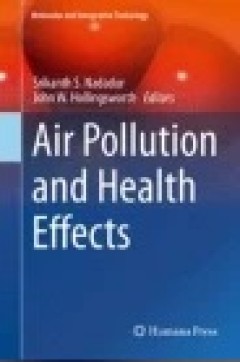
Air Pollution and Health Effects
Exposure to ambient air pollutants, both indoors and outdoors has been associated with the exacerbation and also in the etiology of diverse human diseases. This book offers an overview of our current understanding of air pollution health risks and how this knowledge is being used in the regulatory, therapeutic intervention measures to protect the public health and reduce the disease burden caus…
- Edition
- Ed. 1
- ISBN/ISSN
- 978-1-4471-6669-6
- Collation
- XV, 439
- Series Title
- Molecular and Integrative Toxicology
- Call Number
- 615 AIR a
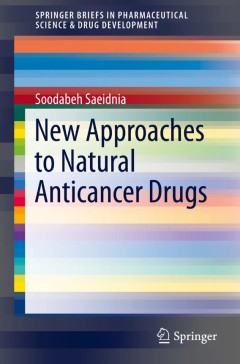
New Approaches to Natural Anticancer Drugs
This book provides an up-to-date review of recently identified natural anti-tumor compounds from various natural origins including plants, fungi, endophytic fungi and marine organisms. It also includes discussion of new areas such as biotechnology and nanoparticles. Chapters explain the challenges and developments in anti-cancer drug discovery approaches, traditional remedies for prevention an…
- Edition
- 1
- ISBN/ISSN
- 978-3-319-14026-1
- Collation
- XI, 106
- Series Title
- SpringerBriefs in Pharmaceutical Science & Drug Development
- Call Number
- -
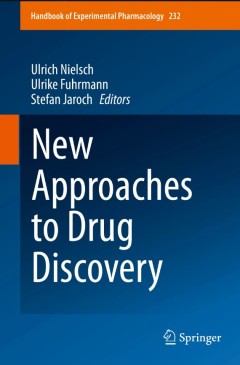
New Approaches to Drug Discovery
This volume gives an overview of state of the art technologies and future developments in the field of preclinical pharmaceutical research. A balanced mix of experts from academia and industry give insight in selected new developments in the drug discovery pathway. The topics cover the different parts of the drug discovery process, starting with new developments in the target identification and…
- Edition
- 1
- ISBN/ISSN
- 978-3-319-80455-2
- Collation
- VIII, 341
- Series Title
- Handbook of Experimental Pharmacology
- Call Number
- -
 Computer Science, Information & General Works
Computer Science, Information & General Works  Philosophy & Psychology
Philosophy & Psychology  Religion
Religion  Social Sciences
Social Sciences  Language
Language  Pure Science
Pure Science  Applied Sciences
Applied Sciences  Art & Recreation
Art & Recreation  Literature
Literature  History & Geography
History & Geography